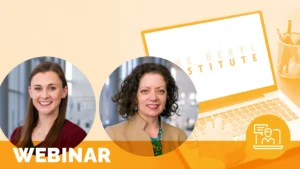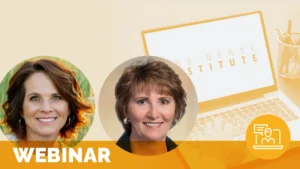Simply Better Summer Gen Z Volunteers

Molly T. McVey | Volunteer Services Coordinator, Piedmont Columbus Regional
This webinar provides learning strategies to increase clinical and nonclinical department “buy-in” for high school student volunteers and explains what tools are necessary to create a more efficient and more meaningful experience for youth volunteers.
*This resource was originally developed by the Association for Health Care Volunteer Resource Professionals (AHVRP) prior to AHVRP integrating with The Beryl Institute in July 2020. This webinar does not offer Patient Experience Continuing Education Credit (PXE).
Related content
-
 Culture & Leadership | Quality & Clinical Excellence | Staff & Provider Engagement
Culture & Leadership | Quality & Clinical Excellence | Staff & Provider EngagementRemediation Strategies to Reduce Shame and Stratify Support for Providers in Patient Experience
This webinar will review evidence regarding remediation of communication skills in healthcare providers, shame in healthcare, and how the two intersect. The experience at our institution includes two pilot programs designed for providers and entire clinics with suboptimal patient experience scores. We will present stepwise strategies, lessons learned, and qualitative and quantitative data that are
Learn more -
 Culture & Leadership
Culture & LeadershipContrasting Patients’ and Healthcare Professionals’ Experience in Hematological Cancer Care Pathway : A Narrative Study
Hematological cancers represent 10% of cancers diagnosed in Canada. Treatments involve complex care pathways and various modalities as well as the management and monitoring of multiple side effects. There is limited understanding of these pathways from the perspectives of the people living with cancer (PLC) and the healthcare professional (HCP). The aim of this article
Learn more -
 Culture & Leadership | Staff & Provider Engagement
Culture & Leadership | Staff & Provider EngagementRising Strong: Team Resilience Strategies
Join us for an insightful webinar where we’ll share practical resilience tools and strategies that greatly enhanced the well-being of a 50-member caregiver team. This team, which manages complaints and grievances for 33 hospitals and 385 clinics across four states, saw their Patient Engagement Scores climb from 63% to 83%, outperforming Intermountain Health’s overall employee
Learn more
